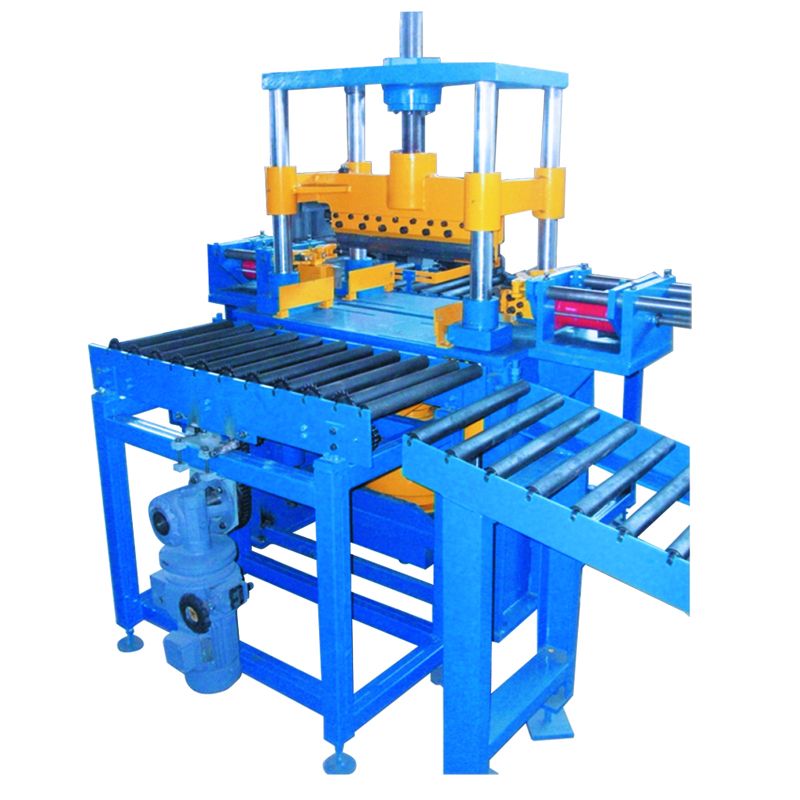Adjustable Mixing and Batching Systems: These machines often feature flexible mixing and batching systems that can accommodate different ratios and compositions of raw materials. This adaptability allows for the production of bricks or blocks using varying aggregates, cement types, or additives.
Mold Configurations: Many machines incorporate interchangeable or adjustable molds that can be customized to produce bricks or blocks of various sizes, shapes, and designs. These molds can be modified to suit different raw material compositions.
Pressure and Compaction Control: Block making machines allow for adjustable pressure and compaction settings during the brick or block forming process. This adaptability ensures proper compaction of various raw materials without compromising structural integrity.
Material Feeding Mechanisms: The machines can have adaptable material feeding mechanisms that cater to different consistencies and compositions of raw materials. This flexibility ensures efficient handling and processing of diverse materials.
Temperature and Curing Control: Some advanced machines include control systems for the curing environment, including temperature and moisture levels. This adaptability allows for optimal curing conditions that suit different raw material compositions.
Compatibility with Additives or Reinforcements: Certain block making machines are designed to handle additional additives or reinforcements within the brick or block composition. This adaptability enables the production of specialized bricks or blocks with enhanced properties.
Customized Programming and Controls: Modern block making machines may feature programmable control systems that allow operators to adjust parameters such as mixing times, compression forces, vibration frequencies, and material flow rates. This adaptability optimizes production based on specific raw materials used.
Material Testing and Calibration: Some machinery includes systems for testing raw materials before production, ensuring their compatibility and quality. This data might be used to calibrate the machinery for optimal performance with varying materials.
These adaptable features and settings in brick block making machines allow for flexibility in accommodating different raw materials or compositions. By adjusting parameters and configurations, these machines can optimize the production process, ensuring consistent quality and performance of bricks or blocks regardless of the material variations used.
Brick block making machines play a crucial role in enhancing efficiency and productivity in brick or block manufacturing through various mechanisms:
Automated Processes: These machines are automated, reducing the reliance on manual labor. Automation streamlines production processes, leading to increased efficiency and reduced labor costs.
High Production Capacity: Brick block making machines can produce large volumes of bricks or blocks in a relatively short time compared to traditional methods. brick block making machine This high production capacity boosts overall productivity.
Consistency and Precision: Machines ensure consistent quality and precision in the produced bricks or blocks. Uniformity in size, shape, and composition leads to better structural integrity and aesthetic appeal.
Reduced Material Wastage: Advanced machines optimize material usage, minimizing wastage by accurately measuring and controlling the raw materials needed for each brick or block. This reduces costs and enhances efficiency.
Quick Mold Changes: Some machines allow for rapid mold changes, enabling swift transitions between different block sizes, shapes, or designs. This flexibility contributes to increased productivity by reducing downtime.
Speed and Cycle Times: Brick block making machines operate at faster speeds and shorter cycle times compared to traditional methods, resulting in higher output per unit of time.
Optimized Energy Consumption: Modern machines are designed to operate efficiently, consuming minimal energy while maintaining high productivity. This efficiency contributes to cost savings and sustainability.
Integrated Quality Control: Many machines include in-line quality control mechanisms, minimizing defects and ensuring a higher percentage of usable bricks or blocks without the need for additional inspection.
Improved Safety and Ergonomics: These machines are equipped with safety features that protect operators and workers, ensuring a safer working environment while maintaining productivity.
Real-time Monitoring and Data Analysis: Some machines incorporate monitoring systems that track production data in real-time. Analyzing this data allows for continuous process improvements, further enhancing efficiency and productivity.
Remote Control and Maintenance: Advanced machines may offer remote monitoring and maintenance capabilities, enabling operators to address issues promptly without interrupting production.
Overall, the integration of brick block making machines into manufacturing processes significantly boosts efficiency, increases output, reduces costs, and improves the overall quality of bricks or blocks produced. These machines contribute to streamlining production, making the manufacturing process more efficient and productive.

Previous: What are the differences between MAG and MMA welding machines?
Next: Engineering Elegance: How Concrete Pump with Mixer Gets the Job Done
Copyright:@2020-2021
Comments Please sign in or sign up to post.
0
0 of 500 characters used